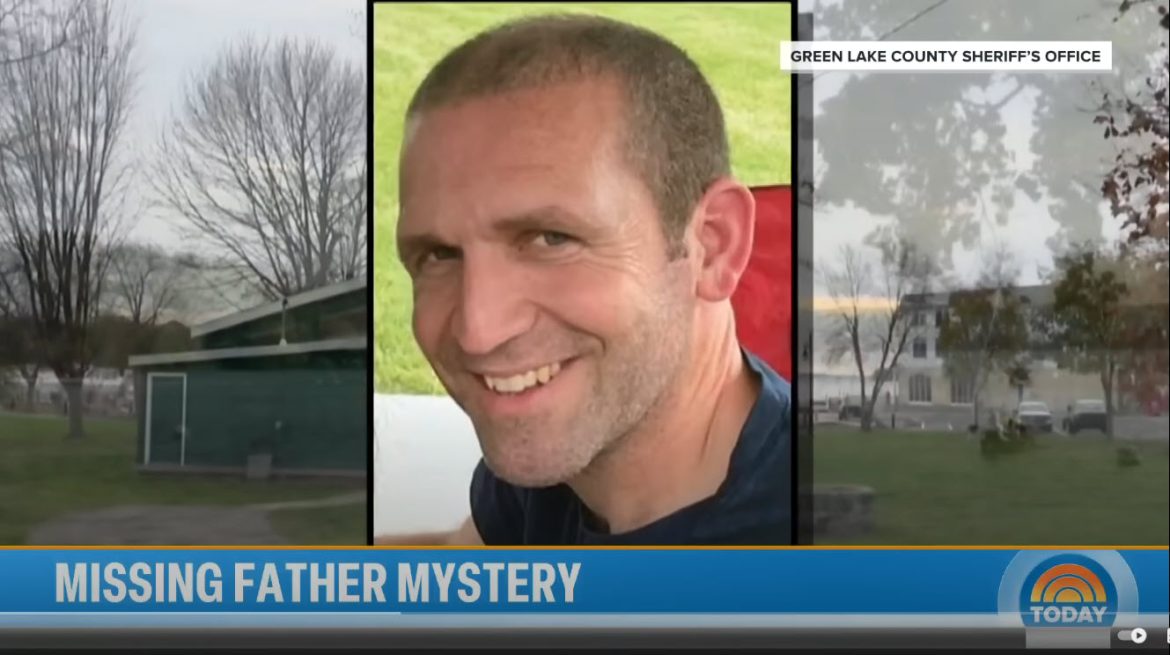Authorities in Wisconsin now believe Ryan Borgwardt, a father of three who was thought to have drowned while kayaking in August, may have faked his own death in an elaborate scheme to evade personal or legal issues. Investigators point to inconsistencies in evidence surrounding Borgwardt’s supposed drowning, suggesting that the 42-year-old’s disappearance might have been staged.
Borgwardt was reported missing on August 21, after he allegedly took his kayak out on Lake Michigan, a popular site for local recreational activities. Initial reports indicated that Borgwardt had gone out on the lake during unfavorable weather conditions, which soon led to fears that he had drowned after failing to return home. The search and rescue operation launched shortly after his disappearance included helicopters, dive teams, and local volunteers, but they found no trace of Borgwardt or his kayak, despite days of extensive searching.
Now, months later, authorities are re-evaluating the circumstances surrounding Borgwardt’s supposed death. New evidence and tips from people close to the case suggest he may have faked his own death, potentially to avoid financial or legal consequences that remain undisclosed to the public. Investigators say that Borgwardt, who is known to be skilled in outdoor survival, had the knowledge to pull off a disappearance and evade authorities.
Sheriff James Landry of Manitowoc County shares that the investigation has taken an unexpected turn. “This case has raised more questions than answers,” Landry said in a press statement. “We have reason to believe Mr. Borgwardt may be alive, and we are actively pursuing leads to locate him.” Sheriff Landry noted that while no charges have been filed, officials are examining the possibility of fraud if it is proven that Borgwardt staged his disappearance for financial gain.
Family and friends of Borgwardt are reportedly shocked and divided over the new revelations. His ex-wife, speaking anonymously, expressed disbelief and frustration over the emotional turmoil his alleged deception has caused, especially for his children, who were devastated by news of their father’s presumed death. “It’s heartbreaking that he would put us all through this. We thought he was gone forever,” she stated, noting the emotional strain on the family.
Experts in missing persons cases and forensic investigations say that faking a death is often more complicated than it seems, especially given today’s sophisticated tracking and digital records. Dr. Linda Porter, a criminal psychologist, explains that the psychological and logistical planning required for such an act is often underestimated. “When someone fakes their death, they’re not only trying to evade detection but must also prepare for a life cut off from their former identity. It’s not a step taken lightly,” Porter says.
Public interest in the case has grown as more details emerge, with some members of the community questioning whether Borgwardt’s potential actions constitute a criminal offense. Legal analyst Eric Nielsen comments that if Borgwardt is indeed found to be alive, he could face serious legal repercussions, including charges related to fraud, misrepresentation, and wasting public resources during the search efforts.
The community that rallied in support during the search is now reacting with a mix of relief and outrage. “We put in countless hours to find him, believing he was a victim of a tragic accident,” says local volunteer Jake Larson, who participated in the search efforts on Lake Michigan. “If he did this intentionally, it feels like a betrayal of the entire community.”
While authorities continue to follow leads, they urge anyone with information on Borgwardt’s possible whereabouts to come forward. His last known location remains tied to the area around Lake Michigan, though officials believe he could have traveled elsewhere. Until more information is confirmed, Borgwardt’s case remains an open investigation, with officials working to uncover the full truth behind his puzzling disappearance.



